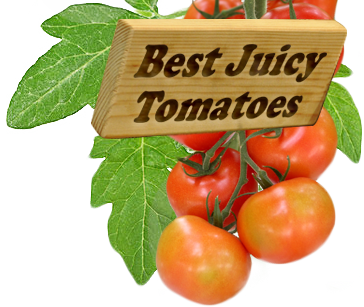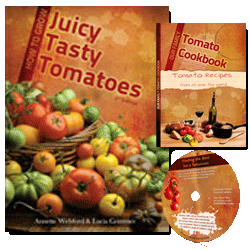Irradiated Tomatoes in Australia
27 Apr

Bugs can attack all types of tomatoes – and so irradiation would be used on every cultivar big and small
It may soon be legal for tomatoes and capsicum in Queensland, Australia to be legally irradiated to kill bacteria and bugs. This announcement was made by Food Standards Australia New Zealand (FSANZ) in mid-March 2013, just four years after the Federal Government prohibited the irradiation of imported cat food after a large number of animals had died, and others had been neurologically damaged as a result of eating irradiated dry cat food.
Ministers who are responsible for the regulation of foodstuffs have until the middle of May to decide whether to agree to formal approval or not.
The Argument for Irradiation of Tomatoes and Capsicums
Until recently fruit fly, a known pest that attacks both tomatoes and capsicums, has been controlled by chemical insecticides like dimethoate and fenthion. But these have recently been restricted and may not be used. This is why Queensland’s Department of Agriculture, Fisheries and Forestry applied for permission to use irradiation, stating that they need to be able to control fruit fly and, in effect, quarantine the fruit.
Several foodstuffs including spices, herbs, some tropical fruits, persimmons and herbal teas, are already being legally irradiated in Australia. Most of these are exported rather than consumed “at home”.
FSANZ maintain that “irradiation of food is a safe and effective way to kill bacteria in foods, extend its shelf life and reduces insect infestation”. The organisation maintains that levels required to successfully treat tomatoes and capsicums are considerably less than those used in the deadly pet food.
What is Irradiation and Which Countries use it?
 Irradiation is a treatment that involves exposing food to a specified dose of “ionising radiation” to control infestation by infests and other things that are likely to spoil the food.
Irradiation is a treatment that involves exposing food to a specified dose of “ionising radiation” to control infestation by infests and other things that are likely to spoil the food.
FSANZ states that more than 40 countries worldwide use irradiation and that by 2005, at least 405,000 tons of food was being irradiated – a figure that has grown enormously since that time. But neither Australia nor New Zealand are front-runners. According to FSANZ “China is currently the biggest user of irradiation, with significant usage in the USA, Belgium, Vietnam and South Africa”.
The organization also maintains that irradiation should only supplement and not replace “good food hygiene, handling, and preparation practices”.
At this point in time, all food worldwide that is irradiated should be clearly labelled… even though the FSANZ maintains that there are “no public health and safety issues” when tomatoes and capsicums are irradiated UP TO a MAXIMUM dose of 1kGy.
If you are the slightest bit concerned about irradiation of tomatoes (and many people are), then the best option is to grow your own organic tomatoes, using natural pest control methods, including companion planting.
Growing your own organic tomatoes is the safest and most delicious way to enjoy tomatoes. For full instructions on how to successfully grow tomatoes, why not buy our book How To Grow Juicy Tasty Tomatoes.










